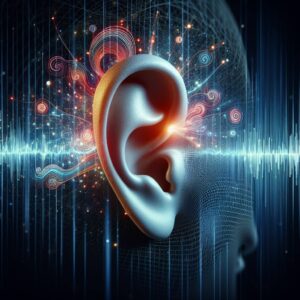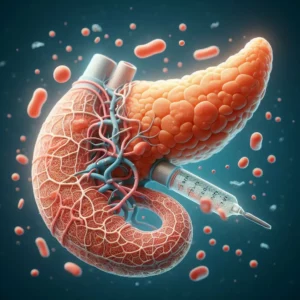Introduction
Do you experience ejaculation problems like premature ejaculation or delayed ejaculation? You’re not alone. Ejaculation problems are more common than you might think, affecting millions of men worldwide. This article will provide a comprehensive overview of the different types of ejaculation problems, including their causes, symptoms, and treatment options. By understanding these conditions, you can take steps to improve your sexual health and enjoy a more fulfilling sex life.
What are they?
There are 4 ejaculation problems that can affect men:
- Premature ejaculation
- Delayed ejaculation
- Retrograde ejaculation
- Anejaculation
Premature ejaculation
Premature ejaculation (PE) is when a man ejaculates or ‘comes’ sooner than he or his partner wishes on all or nearly all occasions. It usually happens before, or within about one minute of, vaginal penetration. But just thinking about something sexually stimulating can trigger ejaculation and sometimes it happens before any direct stimulation of the penis occurs. The important thing to remember is that if ejaculation occurs sooner than the man and/or his partner wishes and this is causing distress, bother, frustration and/or the avoidance of sexual intimacy, then it can be considered ‘premature’.
How common is it?
PE is one of the most common, aggravating, sexual problems affecting men. It can occur at any age and under any situation, but it is most common in younger men, particularly those their teens and twenties. It is often due more to the novelty of the sexual experience (new partner or different situation) than to the man’s age, although most men will experience it at some time. Estimates of how many men are affected by PE vary widely, ranging from just 5% up to 31%.
How is it caused?
Most cases of PE are caused simply by being unable to control the ejaculatory response. Erection problems may play a part, as some men ejaculate early if they think they might lose their erection. There are also some conditions in older men that may interfere with ejaculation, such as changes in the prostate gland, disease of the blood vessels (atherosclerosis), diabetes and neurological disorders.
Early sexual experiences may be important in shaping future ejaculatory habits. Initial nervousness and hurry, such as in having sex in the back of a car, one-night stands, fear of discovery or of being heard at home through the wall and other unsatisfactory early sexual experiences, may lead to a pattern of PE.
Another common cause of PE is relationship problems. Stress in a relationship may come from sexually demanding partners, unrealistic expectations, different needs and desires in a couple, dissatisfaction, lack of communication and trust, outside affairs, a partner who also has a sexual problem and an excessive desire to please a partner. Unkind remarks made at the time may make matters worse and can lead to a cycle of failure and anxiety.
How can you delay ejaculation?
Many men can help themselves to delay ejaculation, but some may need help. Discuss the problem with your partner first, to find out what she needs and how she feels. A simple self-help method that can be effective is called the ‘stop/start technique’. This can be done by the man alone or with his partner, whichever is preferred.
- Step 1: Gradually start stimulation of the penis (a lubricant helps), stopping just before you think you are about to ejaculate (the point of no return!)
- Step 2: Rest, with no stimulation for 30 to 60 seconds, until the need to ejaculate passes
- Step 3: Begin rubbing the penis again, stopping or reducing the stimulation until the need to ejaculate passes. Rest, as above
- Step 4: Repeat the above steps 4 or 5 times, until you begin to recognise when you are about to ejaculate. Allow ejaculation to occur. This needs to be done regularly for a couple of weeks
This ‘stop/start technique’ can be changed to include your partner and is then called the ‘squeeze technique’. Your partner masturbates you up to the point of no return, then firmly squeezes the penis where the glans (knob) joins the shaft using the thumb and forefinger. The sensation of being about to ejaculate will reduce. There may be some softening of your erection, until stimulation begins again. This technique is a bit more difficult to master. A couple will need to be really committed if either of these techniques are to work.
Do ‘delay sprays’ work?
Delay sprays contain local anaesthetics. These can reduce the sensitivity of the glans of the penis, but you may not feel yourself ejaculating either. The most commonly used spray contains lidocaine and can be prescribed by your doctor.
Research has shown that an anaesthetic spray applied to the penis 5 minutes before intercourse helped men with lifelong PE last 6 times longer, with few side effects. It increased the time of intercourse from 0.6 minutes to 3.8 minutes, while the placebo treatment (that contained no active ingredient) only increased the time from 0.6 minutes to 1.1 minute.
When using anaesthetic sprays, it is important to remember that you may transfer the anaesthetic to your partner and reduce her pleasurable sensations, so it’s best to use a condom.
Use of antidepressants
Some antidepressants are known to slow down ejaculation, but most of these are not licensed for the treatment of PE in the UK. However, if your doctor thinks it may help your PE, they may prescribe one of these drugs, usually a selective serotonin-reuptake inhibitor (SSRI) or clomipramine. One tablet is taken at night for a month. If that helps the PE, the treatment can then be taken when required, an hour before intercourse. There are side effects such as a dry mouth, occasional blurring of vision and sleepiness. It should only be taken at night and great care should be taken with driving or with using machinery the next day.
Dapoxetine (Priligy®) is the first drug treatment for PE to be licensed for use in the UK. It is a type of SSRI, but because it works much faster than those described above, it can be taken ‘on demand’ around 1 to 3 hours before sexual activity. It has been shown to significantly lengthen the time of intercourse. Dapoxetine is not generally recommended in men who are taking phosphodiesterase (pronounced phos- pho- di- es- ter- ase) inhibitors (PDE5i) such as Viagra®, because this combination may cause the blood pressure to drop.
For this reason, these medicines should only be prescribed by a doctor who will take your health and other medications into consideration (see our factsheet ‘Oral treatment for erectile dysfunction’). Dapoxetine should not be combined with recreational drugs or alcohol. In trials, very common side effects included dizziness, headache and nausea, and common side effects included anxiety, insomnia, strange dreams, tremor, blurred vision, tinnitus, erectile dysfunction and reduced libido.
Other drug treatments may be available for PE, particularly if you also have erection problems. Talk to your doctor about your options. When taking any drug, particularly those that are not ‘essential’, you need to be sure that the benefits outweigh the risks and these should be discussed with your doctor.
Drug treatments for PE may be also prescribed in combination with sex therapy (see the following section on ‘Sex therapy’).
Delayed ejaculation
Delayed ejaculation (DE) is not anyone’s fault and it is not uncommon. With this problem, ejaculation is affected and the man finds it very difficult to ejaculate or ‘come’ even though he wants to and is receiving sufficient stimulation for this to occur.
How is it caused?
DE may be caused by physical problems (in the body) psychological problems (in the mind) or a mixture of both. Physical causes include severe diabetes, drug therapy and neurological problems, such as those caused by spinal cord injury, pelvic surgery, multiple sclerosis or alcoholism.
Psychological causes are more likely if you don’t have any of the above conditions. Some men may have unknowingly taught themselves to respond in a certain way or manner and ejaculation can only occur in this situation. For example, ejaculation may only happen with masturbation rather than intercourse, as some men get used to a certain type of manual stimulation and find it difficult to adjust to the change in sensations when with a partner. There may also be an underlying relationship problem.
How is it treated?
At the moment, there are no drug treatments approved for DE. Treatment usually involves sex therapy (see the following section on ‘Sex therapy’).
Retrograde ejaculation
Retrograde ejaculation is where you may not see any fluid (semen) after orgasm. If this happens, you may also have noticed that when you first pass water after intercourse it is cloudy. This is because the semen is being expelled backwards into the bladder.
How is it caused?
The most common cause of retrograde ejaculation is surgery to the prostate or the bladder neck. Many men who have had a prostate operation will experience this. Other causes include neurological problems caused by diabetes or multiple sclerosis, spinal cord injury, and some prescription medications (mainly for blood pressure control). The sensation of ejaculation may also be reduced.
How is it treated?
Treatment for this condition would only be considered if fertility was an issue. If you find this condition distressing, you may benefit from sex therapy (see the following section on ‘Sex therapy’).
Anejaculation
Anejaculation is when you get the sensation of ejaculation but you don’t ejaculate at all. It is uncommon.
How is it caused?
The main cause is neurological damage resulting from spinal cord injury, major lymph node surgery, diabetes or multiple sclerosis. It may also be caused by a psychological problem.
How is it treated?
Anejaculation would only be treated if fertility was an issue. If you find this condition distressing, you may benefit from sex therapy (see the following section on ‘Sex therapy’).
Sex therapy
Sex therapy is talking therapy where an individual or couple work with an experienced therapist to assess and treat their sexual and/or relationship problems. Together they will identify factors that trigger the problems and design a specific treatment programme to resolve or reduce their impact.
Sex therapy is considered highly effective in addressing the main causes and contributing factors of sexual difficulties. And it helps people to develop healthier attitudes towards sex, improve sexual intimacy, become more confident sexually, and improve communication within the relationship.
Sex therapy can also be used in combination with other forms of treatment.
Your GP or another health professional on the NHS may be able to refer you for sex therapy (depending on area), or you can contact a therapist directly and pay privately. It is important to make sure that they are qualified and are registered with an appropriate professional body.


